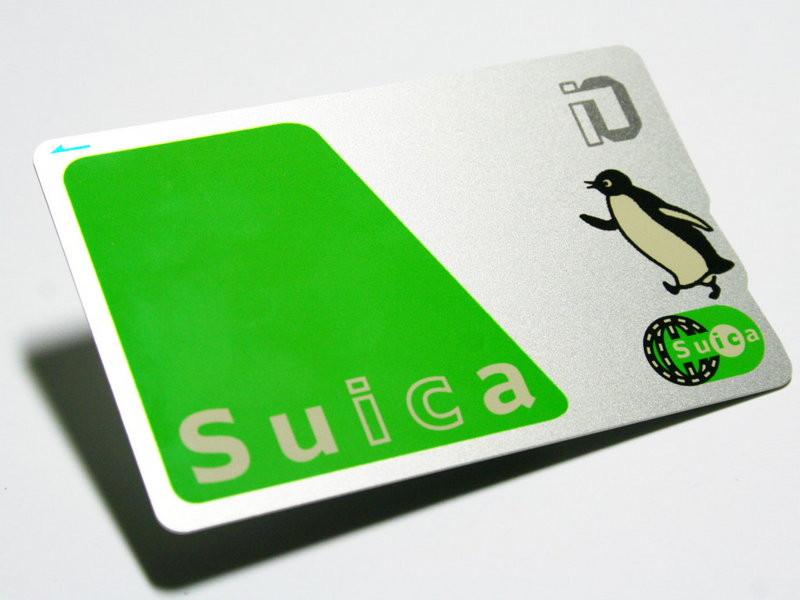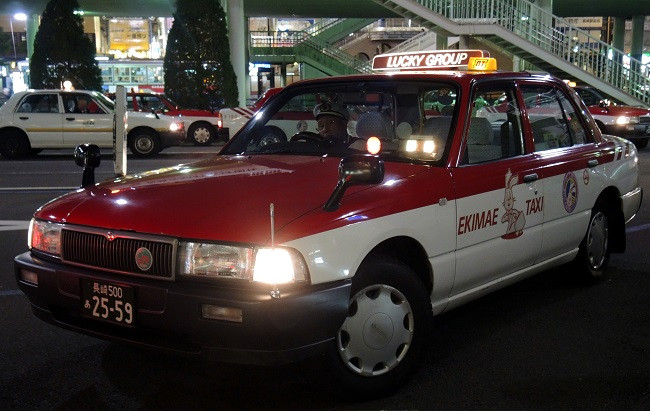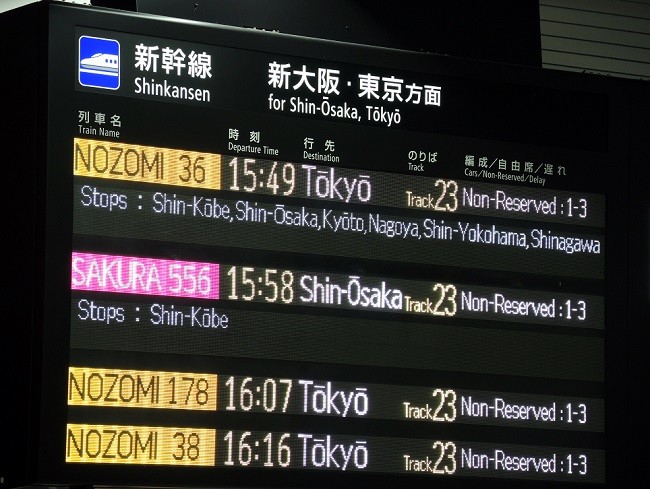Planning a trip to Japan but worried about the language barrier? Absolutely, you can travel to Japan even without speaking Japanese Fluently. SIXT.VN offers services like airport transfers and curated tours to make your trip seamless. With the right preparation, exploring Japan can be an unforgettable experience. This article will provide you with all the insights and tips you need for a successful and enjoyable trip, emphasizing convenience and cultural immersion. We cover how to navigate using public transport, key Japanese phrases, and making the most of available resources like phrasebooks and translation apps.
1. Understanding the Travel Landscape in Japan for Non-Japanese Speakers
1.1 Is it Possible to Visit Japan Without Speaking Japanese?
Yes, it’s entirely possible to travel in Japan without speaking Japanese. While knowing some basic phrases will enrich your experience, Japan has made significant strides in accommodating English-speaking tourists.
Traveling to Japan without knowing Japanese might seem daunting, but it’s absolutely achievable and enjoyable. According to a survey by the Japan National Tourism Organization (JNTO) in 2023, over 80% of foreign tourists reported having a satisfying experience even without fluency in Japanese.
1.2 How Much of Japan Speaks English?
English proficiency varies by location. Major cities like Tokyo and Osaka have more English speakers, especially in tourist areas. In rural areas, English is less common, but people are often willing to help with gestures and translation tools.
According to the English Proficiency Index, while Japan’s English proficiency is considered moderate, you’ll find many people in tourist hotspots who speak at least conversational English. Moreover, many signs in public transport and tourist spots are bilingual, which eases navigation.
1.3 What are the Key Challenges for Non-Japanese Speakers?
- Communication: Ordering food, asking for directions, and understanding announcements can be difficult.
- Navigation in Rural Areas: Signage is often only in Japanese.
- Cultural Nuances: Understanding Japanese customs and etiquette can be challenging.
2. Essential Strategies for Traveling Japan Without Japanese
2.1 Mastering Basic Japanese Phrases
Learning a few key phrases can significantly enhance your travel experience and show respect for local culture.
| Phrase | Japanese | Pronunciation | Usage |
|---|---|---|---|
| Hello | こんにちは | Konnichiwa | General greeting |
| Thank you | ありがとうございます | Arigatou gozaimasu | Expressing gratitude |
| Excuse me | すみません | Sumimasen | Getting attention, apologizing |
| Do you speak English? | 英語を話せますか? | Eigo o hanasemasu ka? | Asking if someone speaks English |
| Where is…? | …はどこですか? | …wa doko desu ka? | Asking for directions |
| How much is it? | いくらですか? | Ikura desu ka? | Asking about the price |
| Yes | はい | Hai | Affirmative response |
| No | いいえ | Iie | Negative response |
| I don’t understand | わかりません | Wakarimasen | Indicating you don’t understand |
| Please | お願いします | Onegaishimasu | Making a polite request |
| Goodbye | さようなら | Sayounara | Farewell (formal, less common in casual situations) |
| Cheers/Bottoms up | 乾杯 | Kanpai | A toast, similar to “cheers” |
| Delicious | 美味しい | Oishii | Describing food |
| I am sorry | ごめんなさい | Gomennasai | Expressing regret or apology |
| What time is it now? | 今何時ですか? | Ima nanji desu ka? | Asking the time |
| How do you say…? | …は何と言いますか。 | …wa nan to iimasu ka? | Asking how to say something in Japanese |
| Help | 助けて! | Tasukete! | An emergency call for help |
| Water | 水 | Mizu | Requesting water |
| Toilet | トイレ | Toire | Asking for the location of the restroom |
| Restaurant | レストラン | Resutoran | Asking for a restaurant |
| Hospital | 病院 | Byouin | Asking for a hospital |
| Train Station | 駅 | Eki | Asking for a train station |
| I want to go to (place) | (place)に行きたいです | (place) ni ikitai desu | Expressing your desired destination |
| I am lost | 迷子になりました | Maigo ni narimashita | Indicating that you are lost |
| What is this? | これは何ですか? | Kore wa nan desu ka? | Asking what something is |
| Where can I find…? | …はどこにありますか? | …wa doko ni arimasu ka? | Asking where to find something |
| May I have the menu? | メニューをいただけますか? | Menyuu o itadakemasu ka? | Asking for the menu |
| No problem | 問題ありません | Mondai arimasen | Indicating that there is no issue or problem |
| No, thank you | いいえ、結構です | Iie, kekkou desu | Politely declining an offer |
| What is your name? | お名前は何ですか? | Onamae wa nan desu ka? | Asking someone’s name |
| My name is… | 私の名前は…です | Watashi no namae wa… desu | Stating your name |
2.2 Leveraging Translation Apps and Devices
Translation apps like Google Translate and iTranslate can be lifesavers. Download these apps and offline language packs before your trip. Consider renting a pocket Wi-Fi device for constant internet access.
According to a 2023 survey by Statista, over 60% of travelers use translation apps while abroad, highlighting their essential role in bridging language gaps.
2.3 Using Technology for Navigation
- Google Maps: Essential for navigating cities and finding specific locations.
- Japan Official Travel App: Provides up-to-date travel information and navigation assistance.
- HyperDia: A website/app for train schedules, although the app is paid.
2.4 Pre-planning and Booking in English
- Accommodation: Book hotels and ryokans that cater to English-speaking guests.
- Transportation: Reserve Shinkansen (bullet train) tickets online where English options are available.
- Tours and Activities: Opt for guided tours with English-speaking guides.
3. Navigating Transportation
3.1 Riding the Shinkansen (Bullet Train)
The Shinkansen is incredibly efficient and tourist-friendly. Most trains have English announcements and displays.
- Buying Tickets: Purchase tickets online or at ticket machines with English interfaces.
- Platform Information: Look for platform numbers and train schedules in English.
3.2 Using Local Trains and Subways
- Signage: Major stations have signs in both Japanese and English.
- IC Cards: Purchase a Suica or Pasmo card for easy travel without buying individual tickets.
 Suica card The Real Japan Rob Dyer
Suica card The Real Japan Rob Dyer
3.3 Buses
While buses may be more challenging due to less English signage, having your destination written in Japanese can be helpful. Using Google Translate’s real-time translation feature can also assist.
3.4 Taxis
Taxi drivers often don’t speak English. Have your destination written in Japanese or use a translation app to communicate. Some taxis now offer translation services via tablet.
 How to travel in Japan The Real Japan Rob Dyer
How to travel in Japan The Real Japan Rob Dyer
4. Dining in Japan
4.1 Deciphering Menus
Many restaurants in tourist areas have English menus or picture menus. Translation apps can also help with Japanese menus.
4.2 Ordering Food
- Point and Order: Pointing at items on the menu is a universal way to order.
- Use Basic Phrases: Knowing phrases like “Kore o kudasai” (This, please) can be helpful.
- Dietary Restrictions: Clearly communicate any dietary restrictions using a translation card or app.
4.3 Understanding Japanese Dining Culture
- Oshibori: A wet towel provided for cleaning your hands before eating.
- Chopsticks: Learn basic chopstick etiquette.
- Slurping: It is acceptable to slurp noodles to show enjoyment.
5. Accommodation Tips
5.1 Choosing English-Friendly Hotels
Opt for international hotel chains or hotels known for their English-speaking staff. Read reviews to gauge the language support.
5.2 Ryokans (Traditional Inns)
While some ryokans may have limited English support, the experience is worth it. Learn some basic Japanese phrases and use translation tools for smoother communication.
According to a 2022 survey by the Japan Ryokan Association, about 30% of ryokans now offer some form of English support, whether through staff or translated materials.
5.3 Communication with Hotel Staff
Use translation apps to communicate with hotel staff if needed. Most hotels are equipped to handle basic requests in English.
6. Cultural Considerations and Etiquette
6.1 Basic Japanese Etiquette
- Bowing: A common greeting and sign of respect.
- Removing Shoes: Remove your shoes when entering homes, temples, and some traditional restaurants.
- Gift-Giving: Present gifts with both hands as a sign of respect.
6.2 Addressing People
Use “-san” after someone’s name as a sign of respect (e.g., Tanaka-san).
6.3 Public Behavior
Be mindful of noise levels in public places. Avoid talking loudly on trains and buses.
 Etiquette in Japan The Real Japan Rob Dyer
Etiquette in Japan The Real Japan Rob Dyer
7. Emergency Situations
7.1 Important Phone Numbers
- 110: Police
- 119: Fire and Ambulance
7.2 Phrases for Emergencies
- Help!: Tasukete!
- I need a doctor: Isha ga hitsuyou desu.
7.3 Contacting Your Embassy
Keep your embassy’s contact information handy in case of emergencies.
8. Making the Most of Tourist Information Centers
8.1 Utilizing Tourist Information Offices
Tourist Information Centers (TICs) are invaluable resources. They offer maps, brochures, and assistance in English.
8.2 Finding English-Speaking Staff
Larger TICs usually have English-speaking staff who can provide detailed information and advice.
8.3 Exploring Local Guides
Local guides can offer unique insights and experiences. Look for English-speaking guides for a more personalized tour.
9. Recommended Destinations for English-Speaking Travelers
9.1 Tokyo
Tokyo is very accommodating to English speakers, with extensive signage and services available in English.
9.2 Kyoto
While more traditional, Kyoto offers many English-friendly tours and accommodations.
9.3 Osaka
Osaka is known for its friendly locals, and many tourist spots have English support.
9.4 Hiroshima
Hiroshima has a well-developed tourism infrastructure with English signage and services.
10. Benefits of Using SIXT.VN Services in Japan
10.1 Airport Transfers
SIXT.VN offers reliable and convenient airport transfer services, ensuring a smooth start to your trip. Our English-speaking drivers can assist you upon arrival, making your transition hassle-free.
10.2 Hotel Booking
SIXT.VN provides a wide selection of hotels that cater to English-speaking guests. We ensure you find accommodations that meet your language and comfort needs.
10.3 Guided Tours
Experience Japan with our expertly curated guided tours. Our English-speaking guides will take you to the best sights, providing insightful commentary and ensuring you don’t miss any hidden gems.
10.4 24/7 Customer Support
SIXT.VN offers 24/7 customer support to assist you with any issues or questions during your trip. Whether you need help with directions or have an emergency, we are always here to assist.
 How to travel in Japan The Real Japan Rob Dyer
How to travel in Japan The Real Japan Rob Dyer
11. Addressing Common Concerns
11.1 Fear of Getting Lost
With proper planning and the use of navigation apps, getting lost can be minimized. Download offline maps and familiarize yourself with your destinations.
11.2 Difficulty in Communication
Translation apps, phrasebooks, and a willingness to use gestures can overcome communication barriers. Remember, many Japanese people are eager to help tourists.
11.3 Cultural Missteps
Learning basic Japanese etiquette can help avoid cultural missteps. Be respectful, and remember that a smile goes a long way.
12. How SIXT.VN Simplifies Your Japan Trip
12.1 Tailored Travel Packages
SIXT.VN offers tailored travel packages designed to meet your specific needs and preferences. Whether you’re traveling solo, as a couple, or with a family, we can create a customized itinerary for you.
12.2 Reliable Airport Transfer Services
Our airport transfer services ensure a seamless arrival and departure experience. Our drivers are professional, punctual, and English-speaking, providing you with a stress-free start and end to your trip.
12.3 Handpicked Accommodations
We select accommodations based on quality, location, and English-speaking support. Whether you prefer a modern hotel or a traditional ryokan, we have options to suit your taste and budget.
12.4 Expertly Guided Tours
Our guided tours are led by knowledgeable and friendly English-speaking guides who will show you the best of Japan. From historical sites to culinary experiences, we offer a variety of tours to cater to your interests.
13. Essential Apps and Tools
13.1 Translation Apps
- Google Translate: Offers real-time translation, text translation, and image translation.
- iTranslate: Provides voice and text translation in multiple languages.
13.2 Navigation Apps
- Google Maps: Essential for finding your way around. Download offline maps to use without internet access.
- Japan Official Travel App: Offers travel information and navigation assistance.
13.3 Transportation Apps
- HyperDia: For train schedules and route planning.
- Japan Transit Planner: Another useful app for navigating public transportation.
13.4 Communication Apps
- LINE: A popular messaging app in Japan.
- WhatsApp: For staying in touch with family and friends back home.
14. Preparing for Your Trip
14.1 Visa and Entry Requirements
Check the visa requirements for your nationality before traveling to Japan. Ensure your passport is valid for at least six months beyond your planned stay.
14.2 Travel Insurance
Purchase comprehensive travel insurance to cover medical emergencies, trip cancellations, and lost belongings.
14.3 Packing Essentials
Pack comfortable shoes for walking, a portable charger for your devices, and any necessary medications. Don’t forget a universal adapter for your electronic devices.
14.4 Pre-Departure Checklist
- Book flights and accommodations.
- Purchase a Japan Rail Pass if needed.
- Download essential apps.
- Learn basic Japanese phrases.
- Inform your bank and mobile carrier of your travel plans.
15. Money and Payments
15.1 Currency Exchange
Exchange some currency before your trip or upon arrival at the airport. Credit cards are widely accepted in major cities, but cash is still useful in smaller establishments.
15.2 Credit Cards and ATMs
Visa and Mastercard are widely accepted. ATMs that accept international cards can be found at post offices and convenience stores like 7-Eleven.
15.3 Budgeting Tips
Japan can be an expensive destination. Plan your budget in advance and consider purchasing a Japan Rail Pass to save on transportation costs.
16. Staying Connected
16.1 Pocket Wi-Fi
Renting a pocket Wi-Fi device is a convenient way to stay connected. You can pick one up at the airport upon arrival.
16.2 SIM Cards
Consider purchasing a local SIM card for data access. These can be found at the airport or electronics stores.
16.3 Free Wi-Fi Hotspots
Free Wi-Fi hotspots are available in some public areas, but they may not be reliable.
17. Overcoming Language Barriers
17.1 Using Visual Aids
Carry a map or pictures of your destinations to show taxi drivers or locals.
17.2 Learning Gestures
Familiarize yourself with common Japanese gestures, such as bowing, to show respect.
17.3 Being Patient and Respectful
Be patient and respectful when communicating with locals. Even if there is a language barrier, a positive attitude can go a long way.
18. Safety Tips
18.1 General Safety
Japan is a very safe country with low crime rates. However, it is still important to be aware of your surroundings.
18.2 Earthquake Preparedness
Familiarize yourself with earthquake safety procedures. Most hotels have information about what to do in case of an earthquake.
18.3 Health and Medical Care
Ensure you have travel insurance that covers medical expenses. Carry any necessary medications with you.
19. Unique Experiences for English-Speaking Tourists
19.1 Tea Ceremony
Participate in a traditional tea ceremony and learn about the art of tea preparation.
19.2 Kimono Rental
Rent a kimono and explore historical sites like temples and gardens.
19.3 Cooking Classes
Take a Japanese cooking class and learn to prepare sushi, ramen, or other local dishes.
19.4 Onsen Experience
Visit an onsen (hot spring) and enjoy the therapeutic benefits of the mineral-rich waters.
20. Conclusion: Your Worry-Free Japan Adventure Awaits with SIXT.VN
Traveling to Japan without speaking Japanese is not only possible but also incredibly rewarding. With the right preparation, tools, and a little help from SIXT.VN, you can enjoy a seamless and unforgettable trip. From reliable airport transfers to expertly guided tours, we are here to make your journey stress-free and enjoyable.
Ready to embark on your Japan adventure? Visit SIXT.VN today to explore our travel packages and services. Let us help you create memories that will last a lifetime.
Address: 260 Cau Giay, Hanoi, Vietnam.
Hotline/Whatsapp: +84 986 244 358
Website: SIXT.VN
FAQ: Traveling to Japan Without Speaking Japanese
Q1: Can I really travel to Japan without knowing any Japanese?
Absolutely! Major cities and tourist spots have plenty of English signage and services. You can navigate effectively with translation apps and a bit of planning.
Q2: What are the best translation apps for traveling in Japan?
Google Translate and iTranslate are highly recommended. Download offline language packs for use without internet access.
Q3: How can SIXT.VN help me travel in Japan without speaking Japanese?
SIXT.VN offers airport transfers with English-speaking drivers, guided tours in English, and handpicked accommodations with English-speaking staff.
Q4: Is it difficult to use public transportation in Japan if I don’t speak Japanese?
No, not at all. Shinkansen and major train stations have English announcements and signage. IC cards like Suica and Pasmo make travel even easier.
Q5: What should I do in case of an emergency in Japan?
Call 110 for the police or 119 for fire and ambulance. Keep your embassy’s contact information handy, and learn some basic emergency phrases in Japanese.
Q6: How do I order food in restaurants if I don’t speak Japanese?
Many restaurants in tourist areas have English or picture menus. You can also use translation apps or point at items on the menu.
Q7: What are some essential Japanese phrases I should learn?
“Konnichiwa” (Hello), “Arigatou gozaimasu” (Thank you), “Sumimasen” (Excuse me), and “Eigo o hanasemasu ka?” (Do you speak English?) are very useful.
Q8: Can I book accommodations in English in Japan?
Yes, many hotels and ryokans cater to English-speaking guests. Check reviews to ensure they have adequate language support.
Q9: What should I know about Japanese etiquette?
Be mindful of bowing, removing shoes when entering homes, and avoiding loud conversations in public places.
Q10: Is it safe to travel in Japan if I don’t speak the language?
Yes, Japan is very safe. However, it’s always good to be aware of your surroundings and take basic safety precautions.



